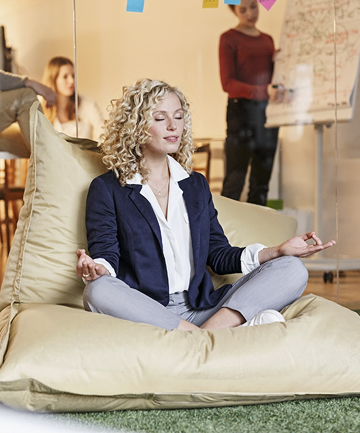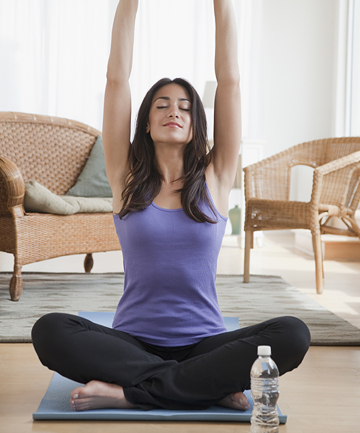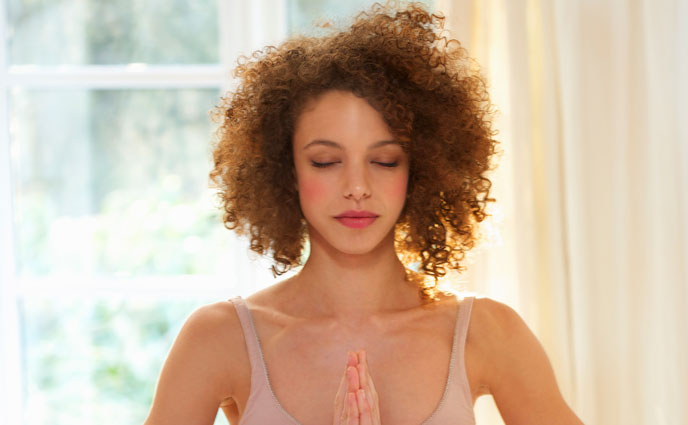Even though a meditation practice is something that's meant to calm and relax you, the act of adopting one can feel like just another "to-do" on your list. "If you are new to meditating, sitting for an hour or even 20 minutes is likely going to feel impossible," Axelrod says. "Your mind may be too distracted and it may be uncomfortable for you to sit still for that long." For this reason, she recommends simply starting where you are. "I suggest my clients start with five minutes a day and then increasing the amount of time they spend meditating as they become more familiar with it."
Image via Tetra Images/Getty
Starting your day off with your meditation practice is your best bet since it helps set the tone for your entire day. "Starting your day calm and centered will have positive effects throughout the day as opposed to starting your day in a hurry and stressed out," Axelrod says. "With that said, meditating in the morning doesn't work for everyone and it is sometimes easier to carve out time to meditate before bed." Do what's best for your schedule and lifestyle instead of forcing a time that just doesn't work. "Once you develop a consistent practice and start experiencing the incredible benefits of meditation, you may ultimately decide you can find time in the morning," adds Axelrod.
Image via Westend61/Getty
While you can meditate pretty much anywhere, it's most effective to seek out a spot that's calm and quiet. "This tranquility will help you move out of your central nervous system and into your parasympathetic nervous system (the part of the nervous system for rest and digest)," Axelrod says. To enhance that space, consider adding accessories such as a meditation pillow, some incense, candles and essential oil to truly make the space your own.
Image via Westend61/Getty
"Your breath can be a powerful tool in helping you cope with temporary emotions," Axelrod says. If you're feeling sad, fatigued or depressed, she suggests focusing on lengthening your inhales and if you are feeling anxious and stressed, focusing on lengthening your exhales. This simple act of breathing in and out can help calm your nervous system down and put your mind at ease.
Image via Blend Images - JGI/Jamie Grill/Brand X Pictures/Getty
Axelrod recommends having a journal on hand after you finish your meditation practice so you can write down anything that comes up during your practice. "A meditation practice will often bring up both sparks of inspiration as well as some buried emotions, so it's beneficial to give yourself the time and the tools to write down what you experienced during your practice," she says. And don't be afraid to make your journal something special and sacred. Her favorite journal is the Hard Linen Journal from Shinola Detroit, $16, which you can get embossed with your initials or a short saying to make it special and personalized.









